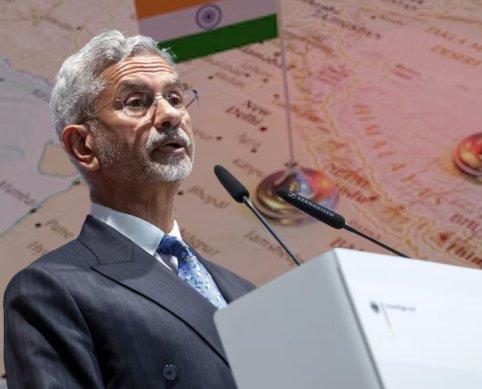Jaishankar: 75% of India’s ‘disengagement issues’ in eastern Ladakh have been addressed

NEW DELHI: Foreign Minister S. Jaishankar characterized India’s relationship with China as intricate, noting that approximately 75% of India’s “disengagement challenges” in eastern Ladakh have been addressed. He indicated that India could explore “other possibilities” once the disengagement process is fully completed and peace and stability are restored along the border.
However, Jaishankar also highlighted a more significant issue: the militarization of the border, which has impacted the overall bilateral relationship. He made it clear that “violence at the border cannot be justified by saying it has no bearing on the relationship as a whole.
Foreign Minister Jaishankar previously stated that the standoff in eastern Ladakh, which began in May 2020, was centered around forward deployment rather than territorial acquisition.
“We have made notable progress in our discussions, with approximately 75% of the disengagement issues resolved,” he noted during his speech at the Geneva Centre for Security Policy in Switzerland. “We are hopeful that we will be able to investigate additional opportunities after disengagement is completed and peace and stability are restored,” he continued.
The relationship between the two nations remains strained due to unresolved disengagement issues at several remaining friction points along the Line of Actual Control (LAC).
Minister Jaishankar noted that the events of 2020 breached multiple agreements for reasons that remain unclear to India. “We can only speculate about it. The Chinese significantly increased their troop presence at the LAC, which led us to deploy additional forces in response. This was particularly challenging as we were amid a COVID-19 lockdown,” he explained, calling the situation dangerous.
According to him, there were a lot of troops stationed in difficult conditions near each other, which made the incident almost certain. It was clear right away that the scenario was dangerous. And that’s exactly what transpired in June 2020,” referring to the Galwan Valley clashes. Jaishankar questioned why China chose to disrupt peace and stability by deploying these troops and stressed the need to address this critical “close-up situation.”
“We have been negotiating for nearly four years now. The initial phase of this process, known as disengagement, involves moving troops back to their respective normal operating bases. Both sides also have arrangements in place for regular patrolling, as the border is not legally delineated,” he explained.









